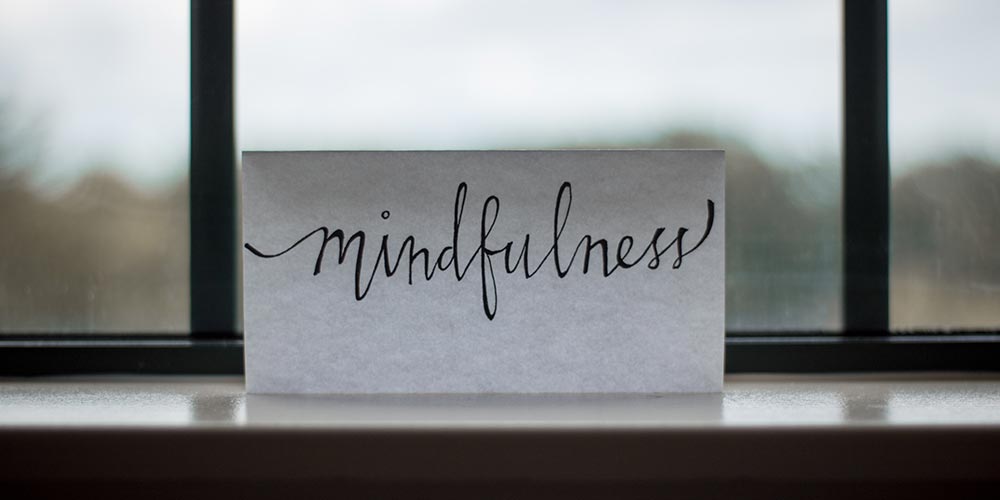COVID-19: Staying calm, building resilience
Managing yourself in tough times
A challenge we all face right now is how to be as calm as we can be in these difficult circumstances. This matters because it looks like the current crisis will not be over swiftly. We’re going to need to manage our natural stress and anxiety. Staying grounded will help us weather this critical period and enable us to be more helpful to those around us too.
There is a proven way you can lower your stress; improve your resilience; develop a greater sense of everyday well-being; sharpen your ability to focus; enjoy more restful sleep; strengthen your immune system; cultivate richer relationships; and find more self-insight. There’s a single technique that can deliver all these benefits. It’s scientifically-proven and involves no lotions, potions or drugs.
This week’s briefing will outline neuroscience findings about the dramatic impact that Mindfulness Meditation can have on the way you think, feel and react to challenges. We hope that, if you aren’t already meditating, by the end of reading this, you’ll feel motivated to at least give it a go!
Modern applications of ancient wisdom
For thousands of years, in cultures around the world, meditation has been a method of self-discovery and self-management, often linked to formal religious or spiritual practices. In the West, philosophers, such as Alan Watts, have interpreted and popularised Eastern approaches to meditation for a Western audience. Watts’s first influential book on the subject was published in 1936. Since then, many writers have contributed useful books on the topic from a spiritual and, increasingly, from a psychological perspective.
For many years, we’ve included Mindfulness training as a regular part of our programs on goal setting and personal strategy. Our work with high performing executives has confirmed for us the vital importance of Mindfulness in closing the gap between ‘knowing’ and ‘doing’.
What is Mindfulness?
In the midst of stress and complexity, it can be hard to think as clearly as you need to. Your attention can be flooded by anxious thoughts, rather than focused on the decisions and actions you need to take. At the very time you need to be mindful, you risk becoming mindless. You can even find yourself slipping into behaviours that may be the opposite of what might help. Rumination, worry, doubt, anxiety and fear can undermine your good intentions and best efforts. But when you’re mindful, you’re able to be calmly aware of what’s happening in both your internal and external worlds. Mindfulness is essentially an attribute of consciousness. It reflects the ability to bring your
attention and awareness to the present moment. Although you might think that attention and awareness are natural functions exercised daily by all of us, the term Mindfulness captures a particular clarity of consciousness. In this sense, it’s positioned in direct contrast to those habitual or automatic states where you simply react according to a long-standing behavioural pattern, irrespective of whether it’s useful in the current situation. It’s as if you create a space where you’re able to think. You can ask yourself, “What’s going on here? What knowledge do I have that could be relevant in helping me figure things out? What behavioural options do I have? What actions on my part might be both appropriate and effective? What is simply beyond my control?”
How is neuroscience sharpening the Mindfulness toolkit?
The first key finding of neuroscience in this area is the concept of neuroplasticity – the discovery that your brain changes in response to experience and so you can transform it through intentional training. This led to the rigorous investigation of how well-being, focus and emotional resilience can be developed through the specific practice of Mindfulness. At a specialised research centre at the University of Wisconsin-Madison, a large team of neuroscientists use technologies, such as fMRI, to scan the brains of people before and after engaging in Mindfulness training – including meditating for just 30 minutes a day for two weeks.
They’ve found that meditation actually alters the function and structure of the brain. For example, meditators are able to control the typical response of the amygdala (the brain’s emotion centre) to unwanted disturbance, distraction and distress. Instead, meditators show greater activity in the brain circuits associated with well-being and focus. This matters because the information processing resources of the human brain are known to be quite limited. Neuroimaging of meditators shows they use and control these limited brain resources much more effectively, reducing stress and taking actions that better align with their overall goals.
It has also emerged that meditation stimulates the various brain regions involved in empathy and care for others, thus increasing pro-social behaviour and ‘EQ’. In fact, the self-awareness impact of Mindfulness training is revealing that when you are consciously aware of an emotional trigger, this decreases the likelihood that an emotional reaction will confuse your responses. Conscious awareness enables you to support others in your world too.
In these ways, neuroscience is telling us much more about the underlying brain mechanisms involved in well-being. It’s become clear exactly how and why Mindfulness training is the simplest, most powerful, multi-purpose neurological tool that will help you stay calm and cope better in these tough times.
PRACTICAL IDEAS TO APPLY IN YOUR BUSINESS
Mindfulness: Getting Started
- Find a quiet, comfortable place to sit, with your back straight but not rigid. You should be relaxed but alert. Close your eyes.
- Just breathe naturally without trying to control your breathing in any way. Bring your attention to your breath. You can say to yourself, “Breathing in. Breathing out.”
- Sounds will come and go around you. Thoughts will come and go too. Sensations will change from time to time. Just allow all these to arise and pass away, much as clouds move across a sky.
- Moment to moment, bring your attention back to your breathing.
- Thoughts and other distractions are likely to intrude. That’s quite normal. Each time, just gently return your attention to your breath.
- When the time you have set aside is up, slowly open your eyes, have a stretch and then just return to your normal activities.
- Regular practice will extend your ability to concentrate and you will reap many mental health and wellbeing benefits from training your mind in this simple way.



